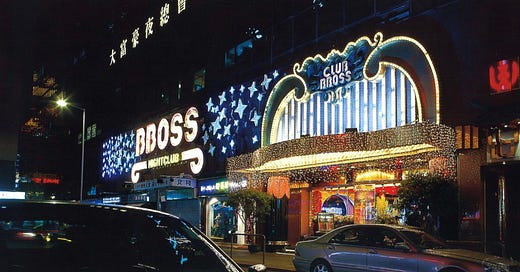Smooth Operators - Clubs BBOSS and Big Boss Generation in Hong Kong
The Asian Crime Century briefing 122
Club Big Boss Generation opened last week in Hong Kong and was promptly raided by the police, with at least one person arrested in relation to suspicion of money laundering. The new club is the successor to the original Club BBOSS that started business in 1984 as Club Volvo, thrived during the economic boom until the early 2000s w…



